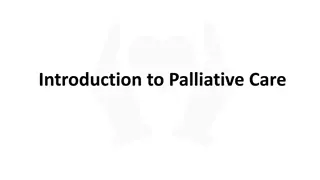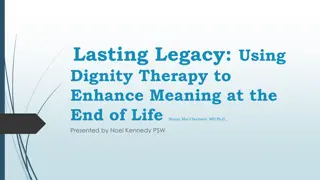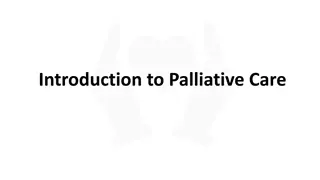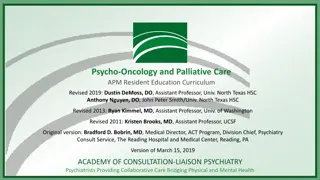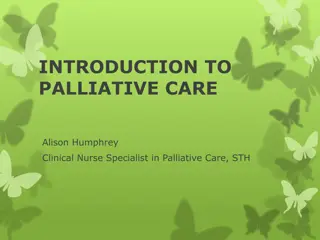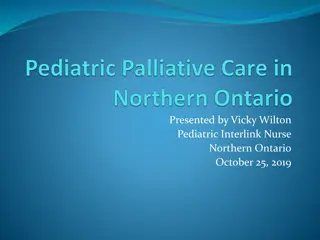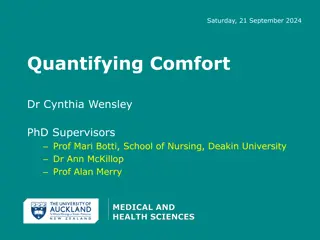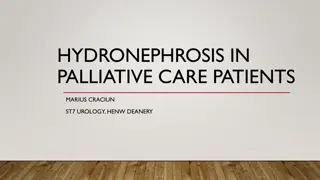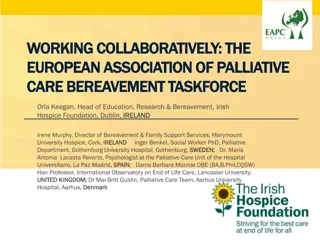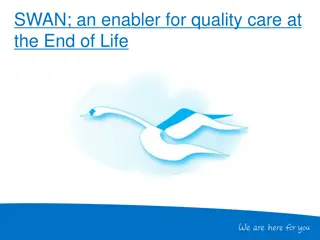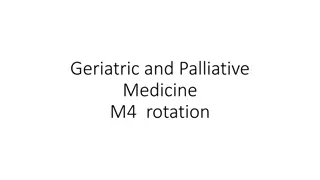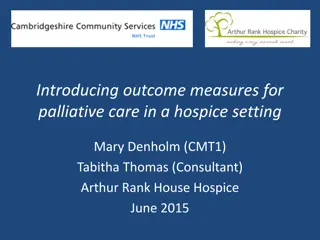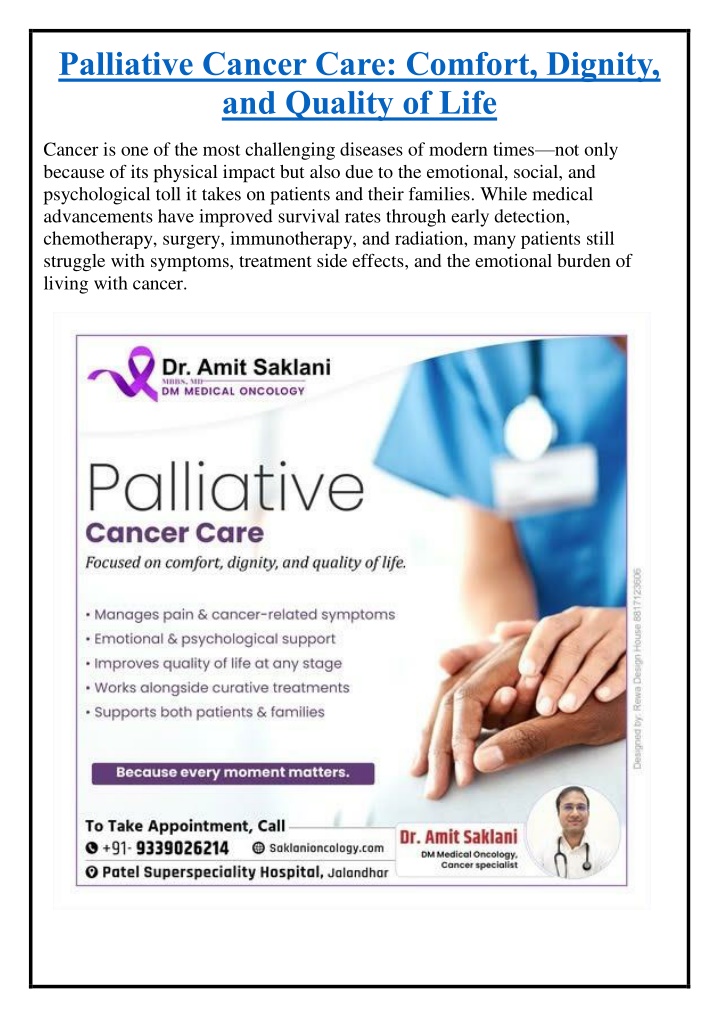
Palliative Cancer Care: Comfort, Dignity, and Quality of Life
Palliative Cancer Care: Comfort, Dignity, and Quality of Life
Download Presentation

Please find below an Image/Link to download the presentation.
The content on the website is provided AS IS for your information and personal use only. It may not be sold, licensed, or shared on other websites without obtaining consent from the author. If you encounter any issues during the download, it is possible that the publisher has removed the file from their server.
You are allowed to download the files provided on this website for personal or commercial use, subject to the condition that they are used lawfully. All files are the property of their respective owners.
The content on the website is provided AS IS for your information and personal use only. It may not be sold, licensed, or shared on other websites without obtaining consent from the author.
E N D
Presentation Transcript
Palliative Cancer Care: Comfort, Dignity, and Quality of Life Cancer is one of the most challenging diseases of modern times not only because of its physical impact but also due to the emotional, social, and psychological toll it takes on patients and their families. While medical advancements have improved survival rates through early detection, chemotherapy, surgery, immunotherapy, and radiation, many patients still struggle with symptoms, treatment side effects, and the emotional burden of living with cancer.
In such cases, Palliative Care plays a transformative role. Palliative cancer care focuses not on curing the disease but on improving quality of life, relieving suffering, and providing comprehensive support to patients and their families. It emphasizes comfort, dignity, and holistic care at every stage of the illness. The Philosophy of Palliative Care The foundation of palliative care lies in the principle that every life has value and dignity, regardless of illness or prognosis. Unlike curative treatments, which aim to eliminate or reduce cancer, palliative care emphasizes: Relief from pain and distressing symptoms Emotional, spiritual, and psychological support Respecting patient autonomy and choices Supporting families and caregivers Enhancing overall quality of life The focus shifts from "fighting the disease at all costs" to "living well despite the disease." This does not mean abandoning treatment it means prioritizing comfort and dignity alongside medical care. Benefits of Palliative Cancer Care Pain and Symptom Relief Advanced pain management techniques ensure minimal suffering. Improved Quality of Life Patients can live more meaningfully, spend time with loved ones, and pursue daily activities. Psychological Healing Reduces depression and anxiety. Helps patients accept their condition with peace. Family Support Equips families to handle emotional and practical challenges. Holistic Care Unlike conventional medicine, palliative care considers mind, body, and spirit. Ethical Approach Respects patient autonomy and decision-making.
Integrating Palliative Care with Cancer Treatment Palliative care is not an alternative to cancer treatment it can be integrated alongside it: During chemotherapy or radiotherapy to reduce side effects. After surgery to manage pain and recovery. In cases where cancer is incurable to maintain dignity and comfort. Research shows that patients who receive palliative care early often: Experience better quality of life Require fewer hospitalizations Sometimes even live longer compared to those who do not receive palliative support Contact Information :- Address : Patel Hospital, Civil Lines Jalandhar, Panjab 144001 Mobile : +919339026214 Conclusion Palliative cancer care is about living better, not just longer. It ensures that patients are not defined by their illness but are supported to live with comfort, dignity, and meaning. As emphasized by Dr. Amit Saklani, palliative care should be seen as an essential part of cancer treatment, not the final option. By managing pain, offering psychological support, and uplifting both patients and families, it transforms the cancer journey from one of suffering to one of compassion and dignity.




